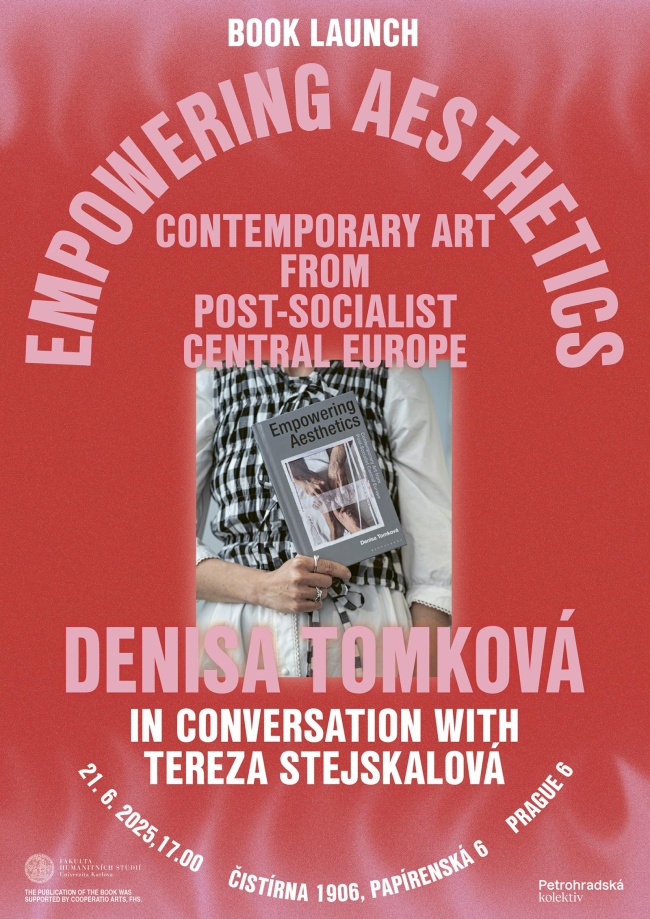Jak se v marginalizovaných skupinách uplatňuje estetika jako emancipační nástroj zkoumá na příkladu post-sovětských států nová kniha Denisy Tomkové z Katedry teorie umění a tvorby. V debatě s kurátorkou Terezou Stejskalovou z organizace tranzit.cz uvede publikaci Empowering Aesthetics: Contemporary Art from Post-Socialist Central Europe, kterou na jaře vydalo prestižní nakladatelství Bloomsbury.
Akce se odehraje v prostoru Čistírna 1906 21. června od 17 hodin.
Art theorist and assistant professor at the Department of Art Theory and Artworks at the Faculty of Humanities Denisa Tomková will discuss her new book Empowering Aesthetics: Contemporary Art from Post-Socialist Central Europe with Tereza Stejskalová, art critic, curator and director of tranzit.cz.
The artistic strategies explored in this book are essential tools in fostering emancipatory consciousness in marginalized communities. Empowering Aesthetics weaves together case studies from the post-socialist Central European region (the Czech Republic, Hungary, Poland, and Slovakia) to show how art can provide critical support to gender, sexual and racialized groups. The empowering aesthetics employed by the artists in this book are not only urgent and critical, but also vitally personal, each chapter building a clear understanding of what social equality looks like in these specific political and geographic contexts. These practices are a response to the rise of nationalism, homophobia, transphobia, and xenophobia in the region. This volume highlights that empowering aesthetics perform an important function in challenging these narratives while contributing to building an inclusive collective memory that emancipates systematically marginalized individuals and communities.
Tereza Stejskalová said about the book: ‘This remarkable study delves into the diverse artistic practices emerging from post-socialist Central Europe (the Czech Republic, Slovakia, Hungary, Poland), a region that has frequently been neglected in the discourse of contemporary art criticism. A comprehensive analysis of how contemporary art actually empowers marginalized communities, it is an essential read for anyone interested in socially engaged practices in semi-peripheral, non-western societies. It is a hopeful and very much needed book. It encourages readers to appreciate the profound impact that art can have in fostering understanding across differences, and ultimately, social justice.’

Univerzita Karlova
Fakulta humanitních studií
Pátkova 2137/5
182 00 Praha 8 - Libeň
Identifikátor datové schránky: piyj9b4
IČ: 00216208
DIČ: CZ00216208